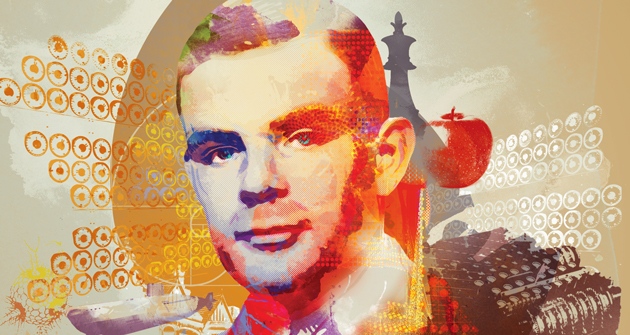Also in the Special Issue:
ANDY POTTS; TURING FAMILYFrom the day he was born — 23 June 1912 — Alan Mathison Turing seemed destined to solitude, misunderstanding and persecution (see page 441). As his centenary year opens, Nature hails him as one of the top scientific minds of all time (see page 440). This special issue sweeps through Turing's innumerable achievements, taking us from his most famous roles — wartime code-breaker and founder of computer science (see page 459) — to his lesser known interests of botany, neural nets, unorganized machines, quantum physics and, well, ghosts (see page 562).
Everyone sees a different Turing. A molecular biologist might surprise you by saying that Turing's most important paper is his 1936 work on the 'Turing machine' because of its relevance to DNA-based cellular operations (see page 461). A biophysicist could instead point to his 1952 work on the formation of biological patterns — the first simulation of nonlinear dynamics ever to be published (see page 464)....MORE
Computer modelling: Brain in a box
Henry Markram wants €1 billion to model the entire human brain. Sceptics don't think he should get it.lan Turing's bridging of logic and machines laid the foundation for digital computers, says George Dyson.We are only beginning to see the impact of Turing's influential work on morphogenesis, says John Reinitz.
...MORE
HT: a reader who sent in the MindHacks post
Did drug money keep the banks high and dry?
which linked to:
